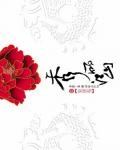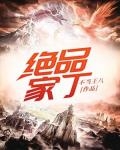Volume 1 Jiangdong Fengyun Chapter 37 Two Gifts
Zhou Shang, the prefect of Danyang, was recommended by Yuan Shu. He also had a famous nephew named Zhou Yu, who was Sun Ce's sworn brother.
It was precisely because of the relationship between Sun Ce's troops and Yuan Shu, and because the Zhou family was also a prominent family in Jiangdong, that Yuan Shu recommended Zhou Shang as the governor of Danyang.
After Sun Jian's death, Sun Ce led his father's remaining troops to join Yuan Shu, which was considered a branch of Yuan Shu's army , similar to Lu Bu's previous joining Liu Bei, except that the relationship of dependence was more clear.
Yuan Shu accepted Sun Ce, firstly to take advantage of his bravery and the strength of Sun Jian's remaining troops, and secondly because of the jade seal that was said to have fallen into Sun Jian's hands. Naturally, he would not really let Sun Ce become powerful.
The position of Jiujiang prefect that was initially promised to Sun Ce did not materialize, and the position of Lujiang prefect that was later promised also changed his mind, which made Sun Ce very dissatisfied with him.
At this time, Zhou Shang's reply to Bai Tu included the military and civil affairs of various counties in Danyang County and the allocation of 200,000 manpower!
What does 200,000 manpower mean? After the Yellow Turban Rebellion, Danyang County had less than 600,000 people in total. Excluding those who needed to be retained at the county level, Zhou Shang had to pay the military service and corvée labor that should be handed over to the state government in winter. Not only did he not intend to shirk his duties, but he also overdrew to a certain extent!
More importantly, this is the manpower of Danyang - Danyang is a place with dangerous mountains, strong people, good martial arts and fighting skills, noble spirit and strength, and elite soldiers!
Bai Tu had also seen that Zhou Shang was intentionally trying to make things difficult for Yuan Shu and also to demonstrate to him.
If Zhou Shang really wanted to give up his county and surrender to Bai Tu, he did not have that much appeal and might even be beheaded by his own men. After all, Danyang was Yuan Shu's influence zone.
Besides, Zhou Shang didn't really want to put himself and the Jiangdong Zhou family under the pressure of Bai Tu. Now he was just using the excuse that "the governor has given the order" to transfer people to Bai Tu while Yuan Shu was not able to react.
After all, they were all still Han ministers in name, and Yuan Shu had not had the time to give him any instructions, so Zhou Shang could have easily shirked his responsibility.
Even if Yuan Shu was dissatisfied, at most he would just find an excuse to fire him...
With these 200,000 manpower, Bai Tu can quickly train 4,000 elite soldiers - the characteristic of Danyang manpower is that after being trained as soldiers, they have the effects of "double the training efficiency" and "increased toughness".
The so-called "tenacity" refers to the ability of soldiers to resist the decline in morale when facing defeat, decline, lack of food, death of their commander, etc. "Improved tenacity" means that the army is less likely to suffer a decline in morale or collapse, which is also what recruits need most!
"Danyang Elite Soldiers" does not refer to a specific type of soldier, but rather to the source of soldiers in Danyang, who can quickly pass through the recruit stage, possess a certain level of combat effectiveness, and be able to grow faster.
Although four thousand soldiers are not a lot, but with the psychological expectation of being stingy before, Bai Tu felt that with the service of these four thousand soldiers, his manpower would suddenly have the illusion of being "sufficient" - Bai Tu did not plan to use Danyang's manpower for other purposes.
As for the 50,000 manpower in the three counties of Qu'a, they can all be invested in the technological improvement and production of city defense equipment.
The good news for Yuzhang was that Hua Xin sent them 50,000 tons of food and fodder!
Although Yuzhang County had been controlled by Yuan Shu, it was not seized by force through war. Hua Xin did not confront him head-on, but to a certain extent, acquiesced in Yuan Shu's infiltration into Yuzhang.
However, at the critical moment, Hua Xin also gave Bai Tu a big gift in the name of "normal allocation of food and wages to the governor"!
What does 50,000 grains of food mean?
The most basic food and grass is pure grain formed by the "taxation" of Chengji. One hu of rice can form "1 food and grass", and 50,000 food and grass are roughly 50,000 hu of rice.
Of course, some food and grass are not pure grains, but also need to be mixed with other meats and vegetables, and they are all different.
Bai Tu has now discovered that the "training" and "taxation" of Cheng Ji's human and material resources can actually be seen as a kind of quantitative synthesis, and although it looks very fantastic, it also has its own internal laws.
For example, 50 people can train one soldier, and 10 people are needed every year to maintain it. Indeed, without hurting civilians, one soldier out of ten people is already the limit, which will affect corvee labor.
If this limit is exceeded, that is, the "overdraft of manpower" of the Castle Princess system, it will lead to a cumulative population decline, that is, each citizen will not be able to provide 1 population in a few years, but 0.9, 0.8 or even less - without considering the Castle Princess system, exceeding this limit will also hurt the people.
However, if they can win battles one after another, they don't need to worry about food and corvée, and a 1:5 ratio can be maintained - not considering the city princess system, in the history of the Qin State, when the military spirit was at its peak, it also reached the level of 5 million people supporting a million troops...
The establishment of these standards actually reflects reality to a certain extent. Cheng Ji... just plays an integrating role!
The same goes for food and fodder. To maintain the army's normal state, the consumption is 1 food and fodder per soldier per month.
One unit of ordinary grain can be roughly regarded as the conversion of one hu of grain, and one hu and one shi are the same unit, that is, ten dou. One dou in the Han Dynasty was probably more than two liters in later generations.
In other words, one dou of rice is the amount of rice in two large Coke bottles, and one hu of rice is the amount of rice in 20 large Coke bottles. Considering that the soldiers are all adult men and they exercise a lot, it is reasonable for them to eat 20 large Coke bottles of rice in a month.
During combat and high-intensity training, this number will fluctuate upward. However, when military rations are insufficient, the morale and strength of the soldiers can be depleted, and supplies can also be reduced.
At the same time, synthesizing and matching richer and more scientific food and grass can improve the strength of soldiers more quickly. Some special training methods also have requirements for the synthesis formula of food and grass!
For example, in the Bingzhou Wolf Cavalry, each soldier can be seen as a collection of cavalry, cavalry followers, and horsemen. The actual number of one thousand cavalry is definitely more than two thousand, so the amount of manpower and food consumed is more than twice.
Fifty thousand grains of fodder was already a considerable amount - Lu Kang and Yuan Shu fell out because Lu Kang refused Yuan Shu's request to transfer thirty thousand grains of fodder.
In order to avoid any further complications, Hua Xin took advantage of the fact that Yuan Shu had not yet reacted and blocked the main roads, so he ignored the high consumption and quickly transferred food and grass. Although the distance was not far, the consumption was as high as three-fifths - out of 50,000 food and grass, Bai Tu only got 20,000!
This is also an inevitable consumption. Even if the grain is transported normally by manpower, the consumption of people and animals, that is, the transportation consumption is also extremely high. Unless the food is eaten locally, it is normal for the consumption of military rations to double. Once the battle line is extended, it is not uncommon for the consumption to be five or six times.
In wars at this time, the attacking side would often retreat due to lack of food and money. This was not because they were being hypocritical, but because the army consumed too much energy during the attack!
The 20,000 yuan I got was enough to support Baitu for three months...
Bai Tu also understood that he was taking advantage of Yuan Shu, who was unaware that he had arrived in Jiangdong.
Now that Yuan Shu knows Bai Tu's movements, he must be sending troops to station and block the official road. By then, manpower and food will no longer be able to be directly allocated through Cheng Ji.
That's why Zhou Shang and Hua Xin stuffed so much into themselves as if it were a one-time deal.
For example, Wang Lang from Kuaiji County had to pass through the territory of Yan Baihu in Wu County to come to Qu'a, but Yan Baihu had blocked the road tightly, so Wang Lang only delivered documents on the military and political situation of Kuaiji, but was unable to directly allocate manpower and food.
With this emergency manpower and food, Bai Tu also breathed a sigh of relief and chose the type of troops to be trained for these 4,000 Danyang elite soldiers...






